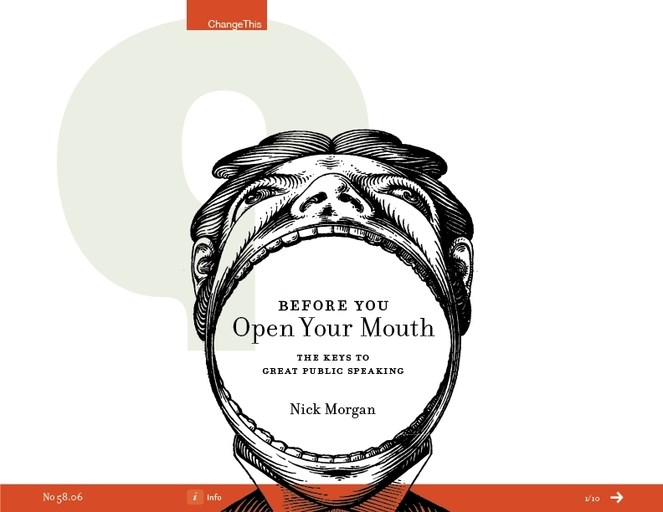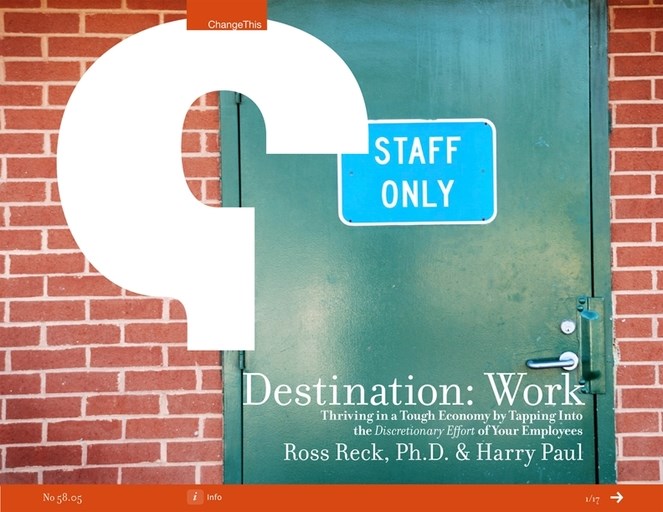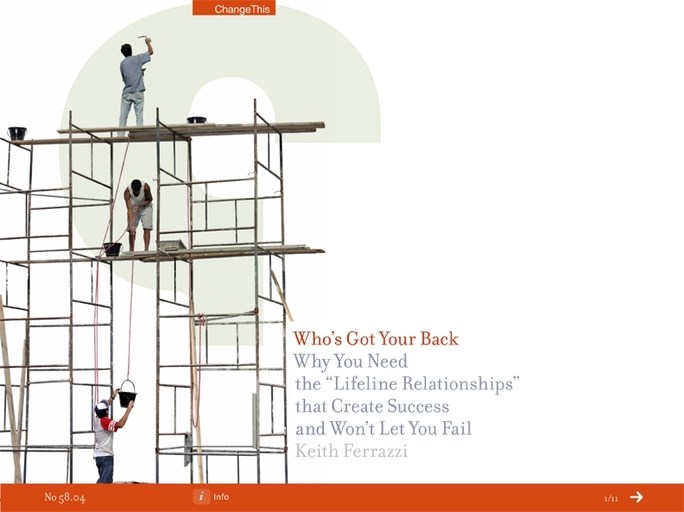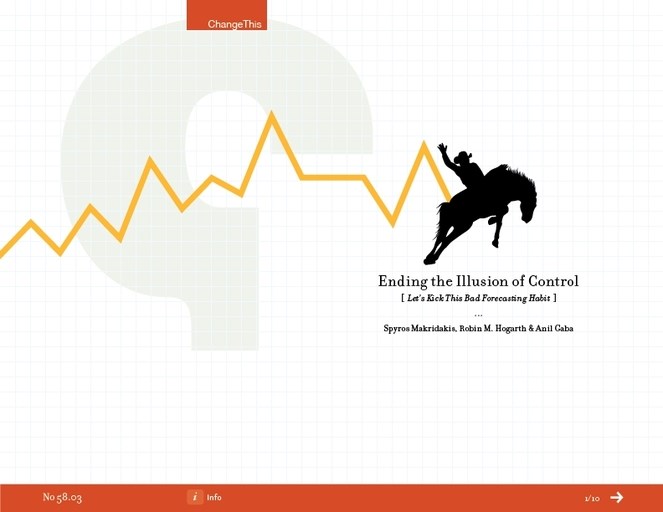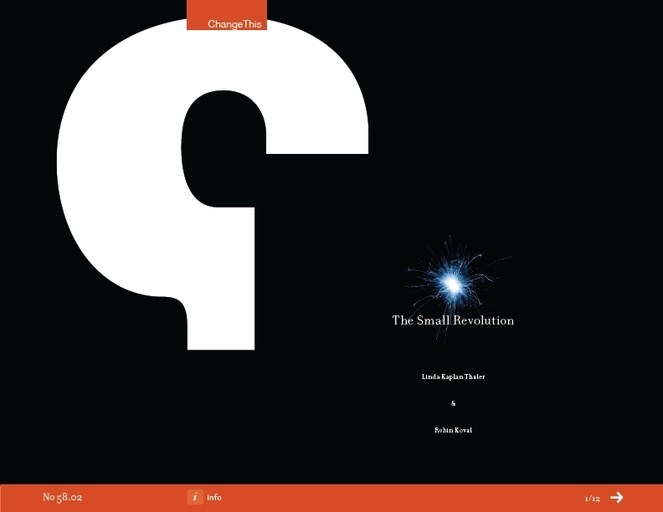ChangeThis RSS
"Why is most public speaking so awful? Why do we subject our fellow human beings to this form of torture when there are so many better things we could all be doing, like cutting our toenails, baking snickerdoodles, or watching re-runs of The Prisoner?
You're in a ballroom with no windows in some random airport hotel. The lighting is dim. The whir of the heating system fills your ears with white noise. The colors around you are shades of grey and beige with puce trimmings. You're only awake because you've had 1300 cups of coffee from the urn in the hallway. Let the speaking games begin.
It's a diabolical sensory deprivation experiment.
Why is most public speaking so awful? Beyond soulless venues and Death by Power Point, speakers make the same four mistakes over and over again, continuing the sorry state of the art."
Continue reading
"Has your company's bottom line taken a serious hit because of today's lousy economic climate? Has your company tried to fix the situation by undergoing a round or two of layoffs only to see your productivity plummet because of reduced morale and your better performing employees jumping ship to other companies or surfing the internet for job postings on your time? If so, would you like to turn your situation around instantly—as in overnight? If you think something like this is impossible, think again. The secret for turning things around is to tap into the discretionary effort of your employees—get them excited about coming to work and applying every bit of energy, creativity and passion they have toward performing their jobs instead of doing only what they have to do to in order to stay employed."
Continue reading
"Behind every great leader, at the base of every great tale of success, you will find an indispensable circle of trusted advisors, mentors, and colleagues. These groups come in all forms and sizes and can be found at every level and in nearly all spheres of both professional and personal life, but what they all have in common is a unique kind of connection with each other that I've come to call lifeline relationships.
These relationships are, quite literally, why some people succeed far more than others.
There's a good chance that you've already experienced the power and potential of lifeline relationships at some point in your life. Imagine some of the attributes of the best bosses you've ever had—the kind of boss who encourages you, who gives you space to grow, who appreciates your efforts, who doesn't micromanage but guides your development with wisdom, and who handles your slip-ups with firmness, understanding, and candor. Or think back to that good friend or family member who dropped everything to be there for you at a critical juncture in your life and didn't let you fail. Picture that associate you had at work who took a risk for you, and whose influence still touches you today.
If you've ever had an important person or group of people in your life who've shepherded you in the right direction—even if you've had just a taste of it—you know what I mean."
Continue reading
"Many reputable institutions issue regular economic forecasts that are widely cited in the international press. And yet, how accurate are these forecasts? Should we really trust them?
[...]
In this manifesto, we note the dismal historical track record of much if not most economic forecasting. Despite this reality, however, people still have an insatiable need to issue and consume forecasts. We therefore make three proposals that can make forecasts both more relevant and useful."
Continue reading
"When tackling problems, we are often told to think big. We filter out life's seemingly insignificant details in order to concentrate on the greater issues. After all, big ideas yield big results, or so the assumption goes. Certainly, no one wants to be thought of as the person who 'can't see the forest for the trees.' But many times, these very same little details are the ones that can serve as the real catalysts for change in our own lives and in the lives of others—if we only start to recognize their potential.
The SMALL revolution asks people to forget about the old ways. To tackle today's issues and achieve our greatest goals, we need to shift our thinking away from the big picture and focus instead on the small pixels. These new times call for a new outlook, and therefore, we must change our perspective from the grandiose and difficult to the humble and doable. By rediscovering the magic within our smallest actions and celebrating the tiny victories that each of us accomplish daily, we can overcome the big obstacles and effect real change."
Continue reading

